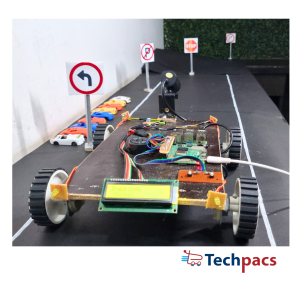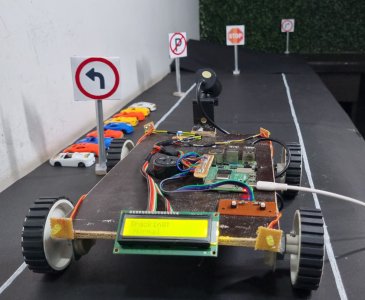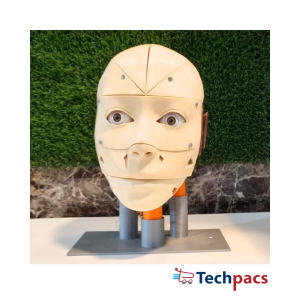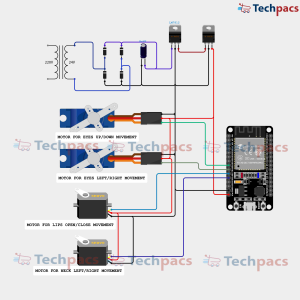Speed Regulation and Efficiency Improvement in Induction Motors through Hybrid PID-Fuzzy Control
Problem Definition
The existing control methods for three-phase induction motors, such as the conventional PI and PID controllers, have limitations that hinder their effectiveness in achieving optimal speed control. These controllers rely on fixed parameters like Kp and Ki, which are often determined through trial and error, making them susceptible to variations that can negatively impact the motor's speed response. In addition, the implementation of fuzzy inference systems for control purposes poses challenges as well, as the output of the fuzzy system is based on predetermined rules derived from input values. To address these limitations, a new approach that combines the advantages of PID controllers and type-2 fuzzy logic is proposed. By integrating the strengths of both control methods, this hybrid approach aims to improve the speed response of induction motors by overcoming the drawbacks associated with traditional control methods and fuzzy systems.
Objective
The objective of the project is to develop a hybrid controller that combines the benefits of PID controllers and Type-2 Fuzzy Logic to enhance the speed response of three-phase induction motors. By integrating the strengths of both control methods, the aim is to overcome the limitations of traditional control methods and fuzzy systems. The project will involve constructing a detailed model of the induction motor system and implementing the hybrid controller to regulate the motor's speed effectively. The use of vector control will further improve the accuracy of speed control by adjusting the voltage supplied to the motor as needed. Through this approach, the objective is to demonstrate a more efficient and precise method for controlling the speed of induction motors, leading to overall improved system performance.
Proposed Work
The project aims to address the limitations of traditional control methods by introducing a hybrid controller that combines the advantages of PID and Type-2 Fuzzy logic. By utilizing this hybrid controller, the speed response of the three-phase induction motor can be improved significantly. The system will be implemented in a Simulink model, which will allow for a detailed evaluation of performance metrics such as rise time, settling time, and overshoot. This approach is chosen to leverage the benefits of fuzzy type 2 over fuzzy type 1, enabling more precise and adaptive control of the motor's speed. By integrating the PID controller's parameter tuning capabilities with the fuzzy logic system's rule-based decision-making, the proposed hybrid controller offers a more robust and efficient solution for motor speed control.
The proposed work involves constructing a comprehensive model of the induction motor system, where the hybrid controller will be implemented to regulate the motor's speed effectively. Through the integration of PID and type-2 fuzzy logic, the controller will be able to adapt to dynamic changes in the system and optimize performance based on the reference speed input. The use of vector control will further enhance the accuracy of speed control by adjusting the voltage supplied to the motor according to requirements. By combining these different control mechanisms, the project aims to demonstrate a more efficient and precise method for controlling the speed of the three-phase induction motor, ultimately improving overall system performance.
Application Area for Industry
This project can be implemented in various industrial sectors such as manufacturing, automotive, and energy production where three-phase induction motors are commonly used for running various machinery and equipment. The challenges faced by industries in controlling the speed of induction motors using conventional methods like PI and PID controllers can be addressed by the proposed hybrid controller of PID and type-2 fuzzy logic. By integrating the advantages of both controllers, the speed response of the motor can be significantly improved, leading to better efficiency and performance in industrial processes. The implementation of this hybrid controller can provide industries with more precise control over the motor speed, reducing errors and fluctuations in the system, ultimately enhancing productivity and reducing downtime. Additionally, the use of fuzzy type-2 logic allows for more robust decision-making in varying operating conditions, making the system more adaptive and reliable in industrial settings.
Application Area for Academics
The proposed project can significantly enrich academic research, education, and training in the field of electric motor control. By introducing a hybrid controller combining PID and type-2 fuzzy logic, researchers, Master's students, and PhD scholars can explore innovative methods for improving the speed response of three-phase induction motors.
This project has the potential to revolutionize the traditional methods of speed control in induction motors by addressing the limitations of conventional controllers. The integration of PID and type-2 fuzzy logic allows for improved error identification and better speed regulation, leading to enhanced motor performance and efficiency.
Researchers in the field of electrical engineering can leverage the code and literature from this project to conduct further studies on hybrid control systems, fuzzy logic applications, and motor control algorithms.
The project's focus on vector control mechanisms and voltage regulation opens up opportunities for exploring advanced control strategies and simulation techniques within educational settings.
By utilizing algorithms like fuzzy type 2 and PID, students and researchers can gain valuable insights into the practical implementation of hybrid controllers and the impact of different control parameters on motor performance. This hands-on experience with cutting-edge technologies can enhance their skills in research methodology, data analysis, and simulation modeling.
In the future, this project can be expanded to include real-time experimentation, fault detection, and adaptive control strategies in induction motor systems. The hybrid controller approach can also be applied to other types of electric motors, expanding the scope of research and innovation in the field of electrical engineering.
Algorithms Used
The proposed model of developed controller for a three-phase induction motor uses a hybridization of PID and type-2 fuzzy algorithms. The three-phase motor is connected to a three-phase inverter, which converts DC current to AC current. By implementing a hybrid controller through the combination of type-2 fuzzy and PID controllers, the system can effectively regulate the speed of the motor. The vector control mechanism relies on the voltage supplied to the motor, which in turn determines its speed. The proposed work involves determining the reference speed (desired speed) and identifying any errors using the fuzzy type-2 model.
This hybrid approach allows for improved accuracy and efficiency in controlling the performance of the induction motor.
Keywords
SEO-optimized keywords: induction motors, motor control, hybrid controller, PID controller, type-2 fuzzy logic, vector control, speed response, fuzzy inference system, three phase induction motor, voltage control, motor drive systems, intelligent control techniques, performance enhancement, adaptive control, fault diagnosis, model-based control, efficiency improvement, sensorless control, machine learning, artificial intelligence, fuzzy type 2.
SEO Tags
induction motors, motor control, intelligent controllers, performance enhancement, control mechanisms, revolutionizing control, intelligent control techniques, motor drive systems, adaptive control, artificial intelligence, machine learning, sensorless control, model-based control, efficiency improvement, fault diagnosis, three phase induction motor, hybrid controller, type-2 fuzzy, PID controller, vector control, fuzzy logic controller, speed response, fuzzy inference system, motor speed, DC current, AC current, reference speed, error identification, hit and trial method, Kp and Ki parameters
| Shipping Cost |
|
No reviews found!



















































No comments found for this product. Be the first to comment!